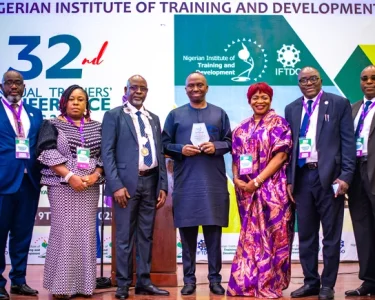As Africa’s largest democracy gears up for its hotly contested elections, the question of technology’s role in enhancing the voting process is once again in the spotlight.
Nigeria goes to the polls in February to elect a new President, House of Representatives, and Senate, as well as new State Assemblies and Governors. More than 84 million of the country’s 211 million citizens are eligible to vote, but mobilising voters and getting them to the polls has proven challenging in recent years.
Voter turnout at Nigeria’s elections has declined over the past few election cycles, with only 30-35% of eligible voters turning up to cast their vote at the ballot come election day. In some regions the voter turnout is as low as 8.3%, according to Nigeria’s Independent National Electoral Commission, driven in part by a general lack of young voters making their way to the poll.
Among the factors contributing to the low voter turnout are inadequate voter education, ineffective voter mobilisation, and low trust in state institutions. And despite the importance of elections to the broader democratic and nation-building effort, many countries in West Africa and across the continent are experiencing declining numbers of voter participation.
Efforts driven by civil society have helped mobilise greater numbers of young voters. One recent partnership aimed at youth in Lagos and Abuja resulted in 74% of applications for a continuous voter registration exercise being young people.
Such efforts are vital as younger, digital-native voters may prove an influential force through their greater use and adoption of digital tools. Sixty percent of Africa’s population is under the age of 25, and the continent’s youth is expected to constitute 42% of all global youth by 2030. Enhancing electoral systems to encourage greater involvement in voting and other democratic processes can only bode well for the continent’s democratic states.
Encouragingly, the Independent National Electoral Commission (INEC) has started making concerted efforts at introducing technology to protect and enhance the voting experience.
This includes the deployment of the Bimodal Voter Accreditation System (BVAS) which provides a dual fingerprint and facial recognition accreditation process to ensure only genuine voters are able to cast their ballots. The introduction of the INEC Result Viewing portal will bring greater visibility and transparency to the polling results in real time come the 2023 elections.
However, there is still enormous scope for the role of technology to enhance the electoral process.
Greater use of e-voting could encourage voters in outlying areas to cast their ballot. At the moment, voters have to travel to physical voting stations, often great distances away from where they live. While not widely used in Nigeria’s electoral system, e-voting was trialed during the 2018 local government elections in Kaduna State.
The use of e-voting could also spark greater numbers of young voters to participate in elections, especially since adoption of digital technologies remain highest among youth.
Greater digitisation of voting processes can also give rise to innovative new start-ups, as is the case with Lagos-based data company Stears. The company developed an elections tracker that displays results in near real-time in the hope of generating excitement for elections and beat voter apathy. At its first attempt in 2019, Stears received two million visitors to their election tracking website, with 99% of visitors accessing the site from their mobile phones.
Quick wins for tech’s role in elections
Several parts of present electoral processes are ready to benefit from the introduction of digital technologies.
Firstly, citizens residing in other countries or who may be traveling abroad during election cycles have a mountain to climb in order to cast their votes. By introducing e-voting functionality to out-of-country voters, the country may benefit from greater voter participation.
Secondly, current voting processes remain overwhelmingly manual and paper-based. Introducing greater efficiency during the voting process can improve the overall voting experience and may contribute to attracting larger numbers of voters. This is especially true in urban areas where technology adoption and mobile penetration remains highest.
Third, technology can play a central role in building trust in the voting process by eliminating error-prone processes with more transparent, digitised processes. This can build trust in elections by ensuring the integrity of electoral results.
Finally, considering Nigeria’s vast size and the disparate nature of many of its communities – especially in rural areas – the use of technology could enable marginalised communities to more easily participate in elections. This can encourage greater involvement in elections across the country and provide a welcome boost to the perceived fairness and integrity of election results.
By Titilayo Adewumi, Managing Director at SAP West Africa



